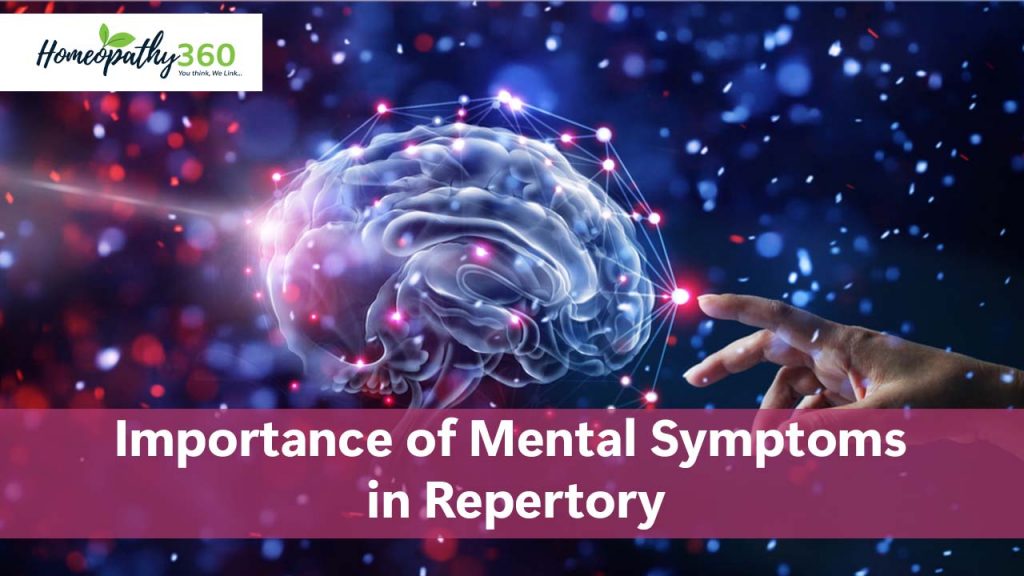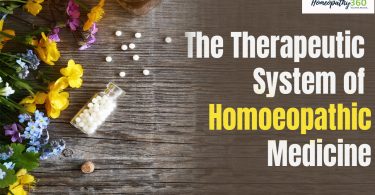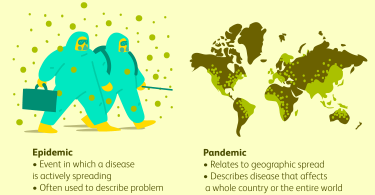
ABSTRACT-.
Mental symptoms are of higher importance in homoeopathy. Different stalwarts of the homoeopathic system of medicine gave prime importance to the mental symptoms, as mind affected first that produces the sign and symptoms on the corporeal state. Emotional and physical sphare of an individual are closely inter related and a disturbance in the one can not but is reflected in the other. In repertory the mental symptoms are of higher importance in individualising the case and selecting a remedy for sick individual. That’s why Mental Symptoms are very important for a homoeopathic Physician.
INTRODUCTION —-
Mental symptoms are the symptoms of MIND; the symptoms of MAN- the VITAL FORCE. The whole Homoeopathy revolves around the mental symptoms.
The other SCHOOLS OF MEDICINE, though, do not gave any value or pay any attention to any things which they can not see with their eyes or feel with their fingers. They take NO notice of the mental symptoms—neither for diagnosis nor for the purpose of the treatment nor for the prognosis. In this point, the Homoeopathy differs from the other Schools of Medicine.
(1)Homoeopathy asserts that everything in man –during Health, Disease and Cure—is known to the MENTAL STATE. It guides to the Physician………
About the condition of man.
- The choice of the medicine, and
- The judgement of prognosis of the sick.
So, ‘’MENTAL STATE REPRESENTS THE STATE OF THE VITAL FORCE.’
SOMETHING ABOUT MIND AND BODY—
The mind and body are not two absolute separate things- but they form an invisible WHOLE. Without mind, the body is not capable of any sensation or function ; the power of comprehension will be absent and the body , then becomes more than a log of wood.
During drug proving, the drug shows their actions through the mind and body—so that , in every drug picture there are alteration of thought, feeling, affection violation intellect, memory, etc.—along with the physical symptoms.
Similarly, when a man is sick,–his mind and body are affected producing mental and physical symptoms.(1)
‘’THE THEORY OF THE PSYCHO-PHYSICAL INTERACTION ‘’ Proposed by DESCARTES (1596-1660) according to him…….
Mind and body are two distinctly separate things. The brain is the organ of mind and each interacts on the other; in active state s mind acts on the brain and in passive, the brain on mind.
By, The sick, HAHNEMANN ment sickness of the whole man, the internal man. Homoeopathy does not consider disease something different from the whole life force.
The ancient Greek Physician HIPPOCRATES, writing in the 5th century B.C., emphasized the environmental causes, the importance of emotional factors and nutrition in health and disease.
‘’THE THEORY OF IDEALISM’’ proposed by BISHAP BERKELAY (1685-1735) according to him ……
‘’our ideas and sensations not only of primary, but of secondary qualities of matter, can not be copies anything objective, but are our own mental experience; our idea are not material thing, beyond them are the real objects of knowledge; and consciousness is the reality and matter the shadow. But it should be noted that it is a re-statement of the psycho- physical problem rather than a solution of it.’’(1)
Thus the Homoeopathy rests on the holistic point of view with the phenomenological methodology as its technique. The holistic philosophy is an essential ingradient for the highest ideal of cure.
THE’’ HOLOSTIC APPROCH TO MEDICINE ‘’ include…………
- Humanistic medicine, which emphasizes the relationship between Physician and Patients and the psychological and spiritual development of both the patient and physician.
- Psychosomatic medicine, which is concerned with the interdependence and mutual influence of psychological and physical factors.
- Behavioural medicine, which stresses the psychological and social causes and effects of medicine.
- Holistic approach to medicine does not replace the missing substance.
- It does not compensate a component system by the direct route.
- It is a regulating effect on the central controlling process ion the organism.
- Holistic medicine acts unconditionally.(3)
In this way, we see that at first the internal man sick and affect the physical identity and we take person as a whole not the individual part or tissue but the whole body sick i.e. THE SICK MAN. This is the basic concept of homoeopathy in which we consider man as a whole sick including his physical and mental state.
HIARARCHY OF SYMPTMS—
Mental symptoms- provided they are definite and well marked. Symptoms of emotion and will, loves and hate, aversion and craving, indifference or abnormal affections, jealousy, suspicious, state of anxiety and mental restlessness, impatience hurridness in doing things, anxiety and fear of darkness of being alone of night etc.; anxiety and fear may be followed by depressive thoughts or state; suicidal thoughts ; loathing of life, weeping, abnormal or without any apparent cause or while narrating symptoms , depressive states may alternate with excitement.
Mental and emotional excitement may follow or incursor of somatic symptoms. It may be the result of interaction with people. Violent anger even with desire for hurting others physically. Impulse to kill others or break and destroy things.
Mental excitement may also be expressive in much pleasant way, like laughing inordinately without apparent cause. There may be abnormal loquaicity.
Another state of excitement may center in the sexual sphere, and the patient suffers from abnormal or perverse sexual thoughts or indulgence.
Mental irritability is a common but important mental symptoms. Its importance is increased when it is modified by definite exciting or aggravating circumstances.
Symptoms of severe obsessive nature or conditions of other deeper psychosis are not as important with hierarchy of mental symptoms. Here physical generals etc. may be more important.
The symptoms of intellect regarding memory, lack of concentration, forgetfulness are assigned comparatively much lower positions in the mentals. (5)
A BRIEF VIEW ABOUT MENTAL DISEASES
Mental diseases are one sided diseases where the symptom is derangement of mind and disposition. The diseases are psoric in origin and chronic in nature. In so called corporeal- diseases the condition of disposition and mind is always altered; the derangement of mind is intensified while corporeal symptoms decline.(7)
Mental diseases are discussed in aphorism 210 – aphorism 230 by Dr. Hahnemann in his book Organon of Medicine in 6th edition. These are of four types—
- Mental disease developed from suppression or metastasis of physical symptoms.
(Aphorism 216)
- Mental diseases developed suddenly from fright , vexation and abuse of liquor.
(aphorism 221)
- Mental diseases developed from some maintaining cause.(aphorism 224)
- Mental diseases appearing from some emotional upset. ( aphorism 225)
TREATMENT
Regarding the treatment of mental diseases at first we construct a complete picture of the disease. After that select a proper remedy
- If disease is very acute – acute medicine is given.
- If disease is chronic – then this acute medicine is followed by a deep acting constitutional antipsoric medicine when the acute symptoms subside .
Some other things to do as-
- Display of confidence.
- Consolatory argument
- Sensible advice
- Application of gentle sympathetic behaviour.
- Avoidance of any corporeal punishment.
IMPORTANCE OF MENTAL SYMPTOM S
- Homoeopathy asserts that everything in man during health, disease, and cure is known by the mental state. It guides the physician about the condition of the man, the choice of the medicine and the judgement of the prognosis,
- Physicians makes judgement of the state of man from the state of his mind, from his abnormal sensations and functions.
- During treatment with suitable selected medicine these abnormal sensations and functions disappears and the patients comes back to his normal healthy state of mind, then and then alone, the homoeopath declares the patient cured of his disease.
- There is no matter which disease is present in body , the mind is affected first and by the help of mental condition , we can judge the man is sick.
- In health, in disease and in cure, the mental state would give a better account of an individual than his physical being. During treatment if the physical symptoms disapper but mentals are remaining then physician restudied the case and select a remedy then that remedy improve the mental and physical state of health.
- When the medicine is selected on mental symptoms and it is administered the physical along with the mental symptoms disappear and the patient is cured.
- During drug proving , each drug produces mental symptoms peculiar to itself, similarly during illness every disease produces mental symptoms peculiar to itself.(2)
Diseases and medicines are to be studied alike. If there is a disease that produces a peculiar mental symptoms, there is a medicine which produces the similar mental symptoms. No two medicines are alike in their manifestation and hence the choice of a medicine based on the mental symptoms shall not be difficult. Eg …..(6)
- A desire to destroy the clothing of others while taking care of his own is found in VERATRUM ALBUM.
- Lack of confidence of BARYTA CARBONICA can not be mistaken for the lack of moral feeling of ANACARDIUM ORIENTALE.
- The dread of storms of PHOSPHORUS can be differentiated from the starting from slightest noise of BOREX.
If two medicine have produces similar mental symptom then the other symptoms will help to differentiate ,for the selection of medicine.
INFERANCE
The mental symptom should always be given in first place in the picture of characteristics and as ‘LETIMOTIV’ for the diagnosis of the remedy. From all above discussion we come on conclusion that—-
The mental symptoms are the symptoms of the man, they are to be given utmost importance does not mean putting them on the top during repertorisation but it means that the medicine selected should cover the mental symptoms.
So, in this way that there are a very great importance of mental symptoms in repertory for the final selection of remedy, condition of the patient and prognosis of the disease. (2)
It is interesting to know that Dr. GALLAVARDIN a French man , who studied all his life only mental symptoms and cured many patients only by the mental symptoms; and pick out the remedy only on the mental symptoms.
Thus, a homoeopathic Physician will have to be a good student of human nature and will have to be fully conversant with the impact and implications of various disturbances in the emotional life of a patient. Emotional and physical sphare of an individual are closely inter related and a disturbance in the one can not but is reflected in the other. That’s why Mental Symptoms are very important for a homoeopathic Physician.
Thus to conclude, it can be said that one should never miss the mental symptoms in an acute or chronic case during repertorisation.
BIBLIOGRAPHY
- Rowe Todd, Homoeopathic Methodology , North Atlantic books U S. 1998
- Tiwari S K, Essentials of Repertorisation, B Jain Publisher
- Kishor J., A book of Repertory, B Jain Publisher
- Castro D B J , Logic of Repertorie, B Jain Publisher
- Mondal T C , Sprit of Organon volume I,II,III, B Jain Publisher
- Das A K,A treatise on Organon of Medicine III, B Jain Publisher
- Hahnemann Samual, Organon of Medicine V and VI edition B Jain Publisher,





